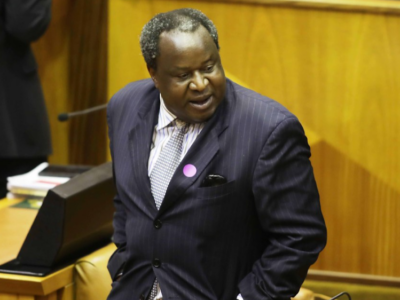Internationally mobile individuals living in the UK have been leaving, or planning to leave, the country in droves in anticipation of a far less tax-friendly regime for “non-doms” (individuals who live in the UK but are not domiciled there). The Labour Party victory in the July 4 election, with the details of its even more stringent stance on non-dom taxation now available, is likely to speed up these departures.
This year’s UK budget under a Conservative Party government marked a significant shift, signalling the end of the tax-friendly non-dom regime that was previously applicable to South Africans and other foreigners already living in the UK or those planning to move there and gain non-dom status.
The Labour Party is equally committed to abolishing the beneficial non-dom tax regime, which has given non-doms a 15-year reprieve on taxing foreign income and gains until now. Given Labour’s landslide victory over the Conservative Party at the polls, its stance on this issue deserves serious examination for those potentially affected.
Labour’s election manifesto outlined the stark contrasts between its non-dom tax proposals and those of the Conservatives. When implemented, these differences will change the tax landscape for foreigners living in the UK as non-doms considerably, in two ways in particular.
Inheritance tax crackdown. The Labour Party plans to crack down on inheritance tax avoidance by removing all inheritance tax benefits from any offshore trusts whenever these were created, even if it was before the non-doms had any ties to the UK. In its manifesto, Labour said it would “end the use of offshore trusts to avoid inheritance tax so that everyone who makes their home here pays their taxes here”. By contrast, the Conservative Party proposals would have allowed all trusts established by non-UK-domiciled individuals before April 6 2025 to continue to benefit from excluded property status.
Transitional tax relief. Labour has said it will remove many of the transitional relief measures proposed by the Tories while adding a few of its own. Its election manifesto indicates that the party will not proceed with the Conservatives’ proposed 50% reduction in foreign income subject to UK tax in 2025/26.
Labour plans to explore investment incentives for individuals eligible for the new four-year foreign income and gains regime, including tax-free UK investment income during that period. It may also consider setting up a transitional repatriation facility that incentivises non-doms who are part of the new four-year transitional regime to bring unremitted foreign income and gains into the UK after 2026/27.
In addition to taxing non-doms only 50% of offshore income in the first year, non-dom transitional tax relief proposals include rebasing capital gains and a 12% “temporary repatriation facility” to remit pre-2025 offshore funds at a flat rate.
Advisers warn that Labour’s plans could prompt an exodus of wealthy non-doms, entrepreneurs and financiers from the UK to lower-tax jurisdictions such as Switzerland, Italy, Spain, Dubai and Singapore, which have little or no inheritance tax on foreign assets. Many non-doms have already made contingency plans.
Tax advisers have been inundated with queries from nervous non-doms reviewing their residential ties and restructuring their wealth. However, the likely outcome of deliberations around the proposals already put on the table is still being determined. It will only be bedded down after consultations with the private sector, with the details then thrashed out by the new government in the months leading up to the new tax year.
The new government will need to consider the effect of these tax proposals on the broader economic economy and the additional tax revenues the new measures are likely to bring in. Labour’s election manifesto pencilled in an expected revenue boost of £5.3bn. However, critics argue that driving out wealthy foreigners could reduce overall UK tax revenues by making the country less attractive to investment and expenditure by the super-rich. An exodus would also have a negative effect on service industries catering to the wealthy.
It is crucial to remember that these proposals are just that — proposals. Details of the non-doms tax regime are likely to differ once the new government has gathered and considered comments from the private sector. But they highlight Labour’s anti-avoidance agenda, which will permanently alter the UK’s status as a relatively tax-friendly destination for non-doms.
Given that the new structure will take effect in the 2025/26 tax year there is time for those affected to respond to the final policy outcomes. That means affected non-doms who still choose to reside in the UK will need to work closely with and draw on the advice of experts to consider all investment and tax structuring options available so that they can move quickly when they have all the information.
• Kadikoy is managing partner of independent offshore investment management firm Levantine & Co.









Comments